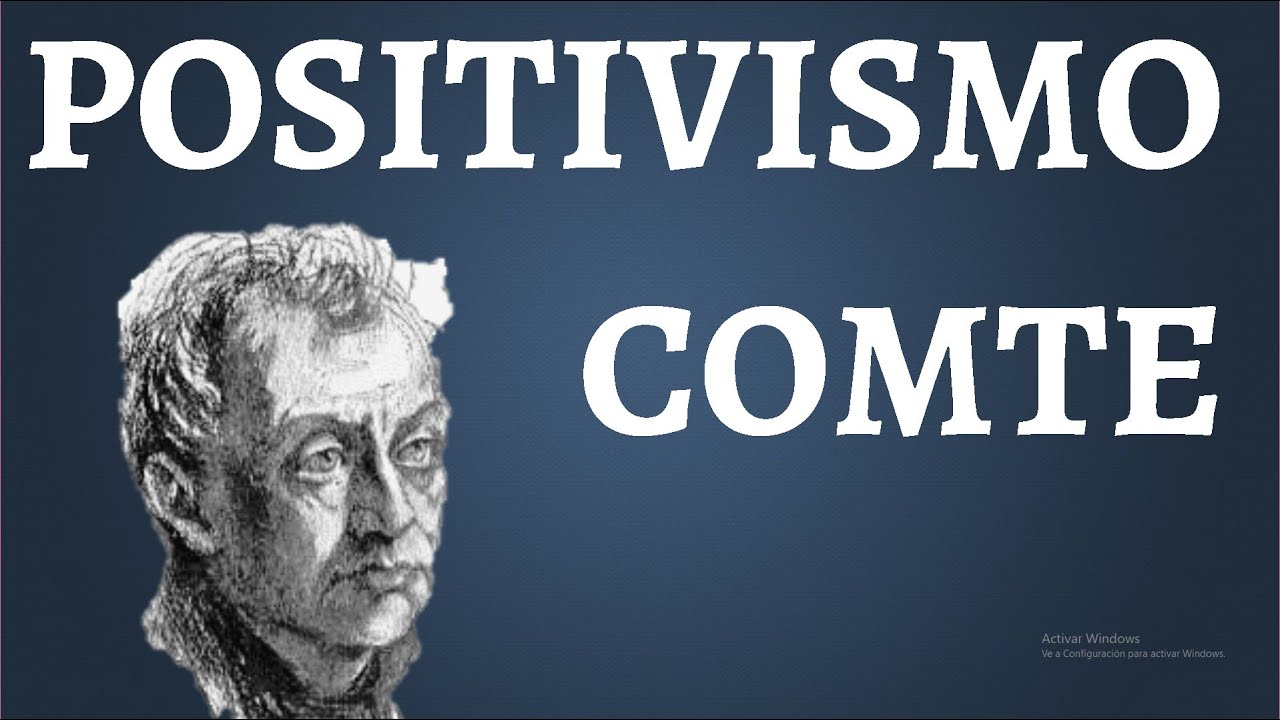O QUE É O POSITIVISMO DE AUGUSTE COMTE?
Summary
TLDRThe video provides an insightful exploration of Auguste Comte's positivism, a philosophy emphasizing the importance of science and rationality in understanding society. The host discusses how Comte's ideas evolved from the Enlightenment, arguing for a methodical approach to studying human behavior. Positivism is portrayed as a double-edged sword, being foundational for the social sciences but also critiqued for its oversimplified view of natural societal progress. The video highlights positivism's influence in Brazil, particularly in the military and political arenas, and invites viewers to engage with the content further.
Takeaways
- 📚 The video discusses the importance of the French philosopher and sociologist Auguste Comte, who is considered one of the first sociologists and a key figure in the development of positivism.
- 🔍 Positivism, as proposed by Comte, emphasizes a scientific approach to understanding society, suggesting that social phenomena can be studied and understood through natural laws, much like the physical sciences.
- 🌟 Comte's positivism is seen as an evolution from the Enlightenment thinking of the 18th century, advocating for rationality and science as the basis for societal progress.
- 🧐 The video critiques the positivist approach for its potential oversimplification of social issues, suggesting that it can lead to overlooking the complexities and conflicts inherent in human societies.
- 🏛️ Positivism influenced the creation of the first scientific method for studying society, which Comte believed should be based on observing natural laws and order.
- ⚖️ The video points out the dangers of applying positivism too rigidly, such as justifying social inequalities or historical injustices like slavery as 'natural' societal developments.
- 🇧🇷 The script highlights how positivist ideas have been embedded in Brazilian history and culture, including the country's motto 'Order and Progress' which reflects Comte's influence.
- 🔄 Comte proposed a sequential view of history, moving from theological to metaphysical to positive (scientific) phases, suggesting an inevitable progression towards a more rational and scientific society.
- 🏛️ The video mentions Comte's idea of creating a 'Religion of Humanity' or a positivist church, which would replace traditional religious beliefs with a moral system based on science and reason.
- 🌐 The script concludes by emphasizing the dual nature of positivism: while it was groundbreaking in establishing a scientific approach to sociology, it also had limitations and potential for misuse in understanding the complexities of human society.
Q & A
Who is the philosopher and sociologist discussed in the video?
-The video discusses Auguste Comte, a French philosopher and sociologist who is considered one of the first sociologists and is known for his positivist philosophy.
What is positivism as described in the video?
-Positivism, as described in the video, is a philosophical approach that emphasizes the use of science and reason as the basis for understanding society and the world. It suggests that society progresses in a natural, orderly, and progressive manner.
How does the video relate positivism to the Enlightenment?
-The video suggests that positivism is an evolution of Enlightenment thought, taking the emphasis on reason and science further by applying it to the study of society.
What is the significance of Auguste Comte's work in the field of sociology?
-Auguste Comte's work is significant because he created the first scientific method for studying society, which laid the foundation for sociology as a discipline.
What are the criticisms of positivism mentioned in the video?
-The video criticizes positivism for being overly simplistic in its view of society as naturally progressing without errors or conflicts, and for potentially justifying harmful social practices by considering them 'natural.'
How does the video connect positivism to the history of Brazil?
-The video connects positivism to the history of Brazil by mentioning that the ideas of order and progress found in positivism influenced the country's early republican period and are reflected in the national motto on the Brazilian flag.
What is the 'Religion of Humanity' or 'positivist church' mentioned in the video?
-The 'Religion of Humanity' or 'positivist church' refers to a proposed secular religion by Auguste Comte that would replace traditional religious beliefs with a focus on science, reason, and human welfare.
Why does the video suggest that positivism can be both important and problematic?
-The video suggests that positivism is important for its contributions to the study of society and its emphasis on science and reason, but it can be problematic because it may oversimplify complex social issues and lead to the acceptance of harmful practices if they are perceived as 'natural.'
What is the video's stance on the application of positivism to historical events like slavery and the Holocaust?
-The video criticizes the application of positivism to historical events like slavery and the Holocaust, arguing that using positivism to justify such events as 'natural' is incorrect and dangerous.
How does the video explain the evolution of thought from theology to positivism?
-The video explains the evolution of thought as a progression from theological explanations, to metaphysical inquiries, and finally to the scientific and positive approach of positivism, which seeks to understand phenomena through empirical evidence and reason.
Outlines

此内容仅限付费用户访问。 请升级后访问。
立即升级Mindmap

此内容仅限付费用户访问。 请升级后访问。
立即升级Keywords

此内容仅限付费用户访问。 请升级后访问。
立即升级Highlights

此内容仅限付费用户访问。 请升级后访问。
立即升级Transcripts

此内容仅限付费用户访问。 请升级后访问。
立即升级浏览更多相关视频

Comte; que significa POSITIVISMO

Teori Sosiologi Klasik-Auguste Comte (Seri 2)

AUGUSTE COMTE: UM MEGARRESUMO PARA O ENEM E VESTIBULARES

História e Filosofia da Ciência - Um breve histórico do Método Científico (Parte I) #4

POSITIVISMO | QUER QUE DESENHE | MAPA MENTAL | DESCOMPLICA

Historia de la Filosofía Contemporánea
5.0 / 5 (0 votes)
